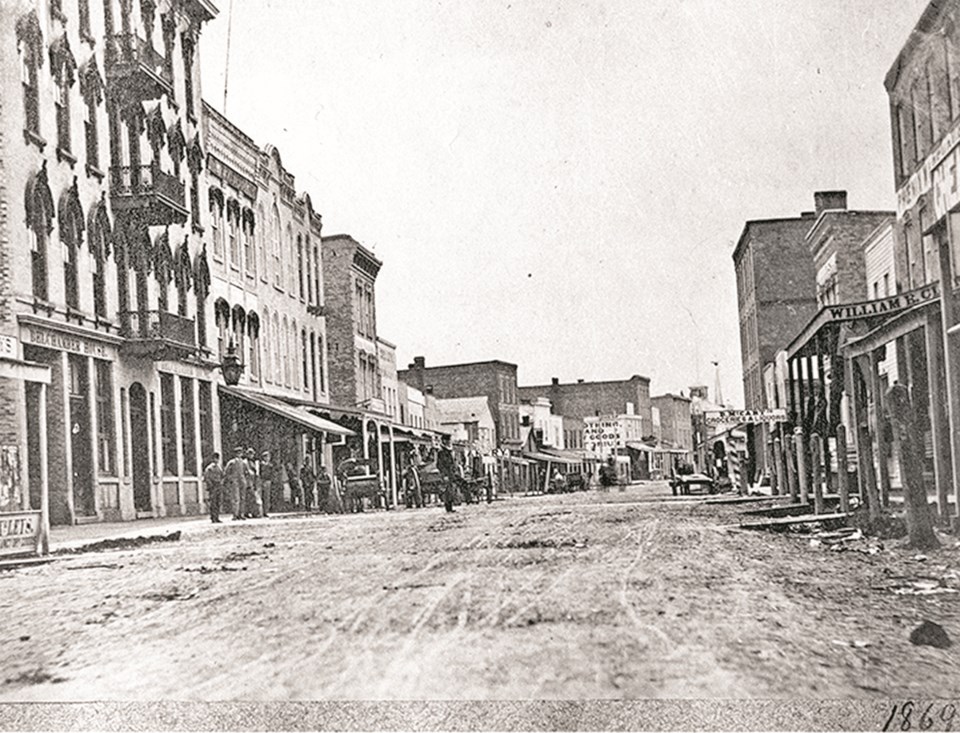Phil Egan
It will be different this year.
There will be no crowds of happy thousands decked out in red and white, merrily waving maple leaf flags.
Festivities in Canatara Park have gone dark, with the usual parade cancelled, food and craft booths missing, hot air balloons grounded, and sports fields quiet.
For Sarnia – a city known for the vigour and spirit with which it celebrates our national holiday, it’s a cruel and unnatural blow. COVID-19 restrictions remain in place.
So it’s a good time to consider the importance of our very first Canada Day – especially, in a border town like Sarnia.
In 1864, as delegates of the British North American colonies gathered at Province House in Charlottetown, Sarnia was a town of 2,091 souls. Delegates from Ontario, Quebec, and the Atlantic provinces of Nova Scotia and New Brunswick had much on their mind.
South of the border, the U.S. Civil War was entering its final full year. During that conflict, Canada’s colonies had been confronted with frightening examples of an increasingly aggressive America.
In the wake of a naval incident known as the Trent Affair, Britain had rushed 14,000 troops to British North America as war fervor mounted. Fear of invasion abated only when the U.S. finally returned two Confederate diplomats in had forcibly removed from a British ship.
Breaches of Canadian territory followed, with the Confederate seizure of the American ship Chesapeake in Nova Scotian waters in 1863, raising tensions again. Late in 1864, American troops in Vermont were only prevented from pursuing Confederate bank robbers into Montreal by a direct order from President Abraham Lincoln.
But Montreal continued to be known for harbouring Confederate spies, and fears of American vengeance was constant. The American government included a number of rabid annexationists including the U.S. Secretary of State, who dreamed of a U.S. stretching from Mexico to the Arctic Circle.
The end of the Civil War brought an even greater threat. Heavily armed Fenians, Irish patriots, threatened to invade Canada as ransom for Irish independence from Britain. In Sarnia in 1866, troops from across Ontario flooded into the city as protection against an expected invasion.
A Fenian army actually captured Fort Erie and inflicted a number of casualties before the threat dissipated.
Canadian Confederation in 1867 brought peace and a sense of safety and security to our little town.
As we gaze south toward the U.S. today, beset by violence and a pandemic it was largely unable to control, our pride in being Canadian has never been greater.
Phil Egan is editor-in-chief of the Sarnia Historical Society. Got an interesting tale? Contact him at [email protected]
